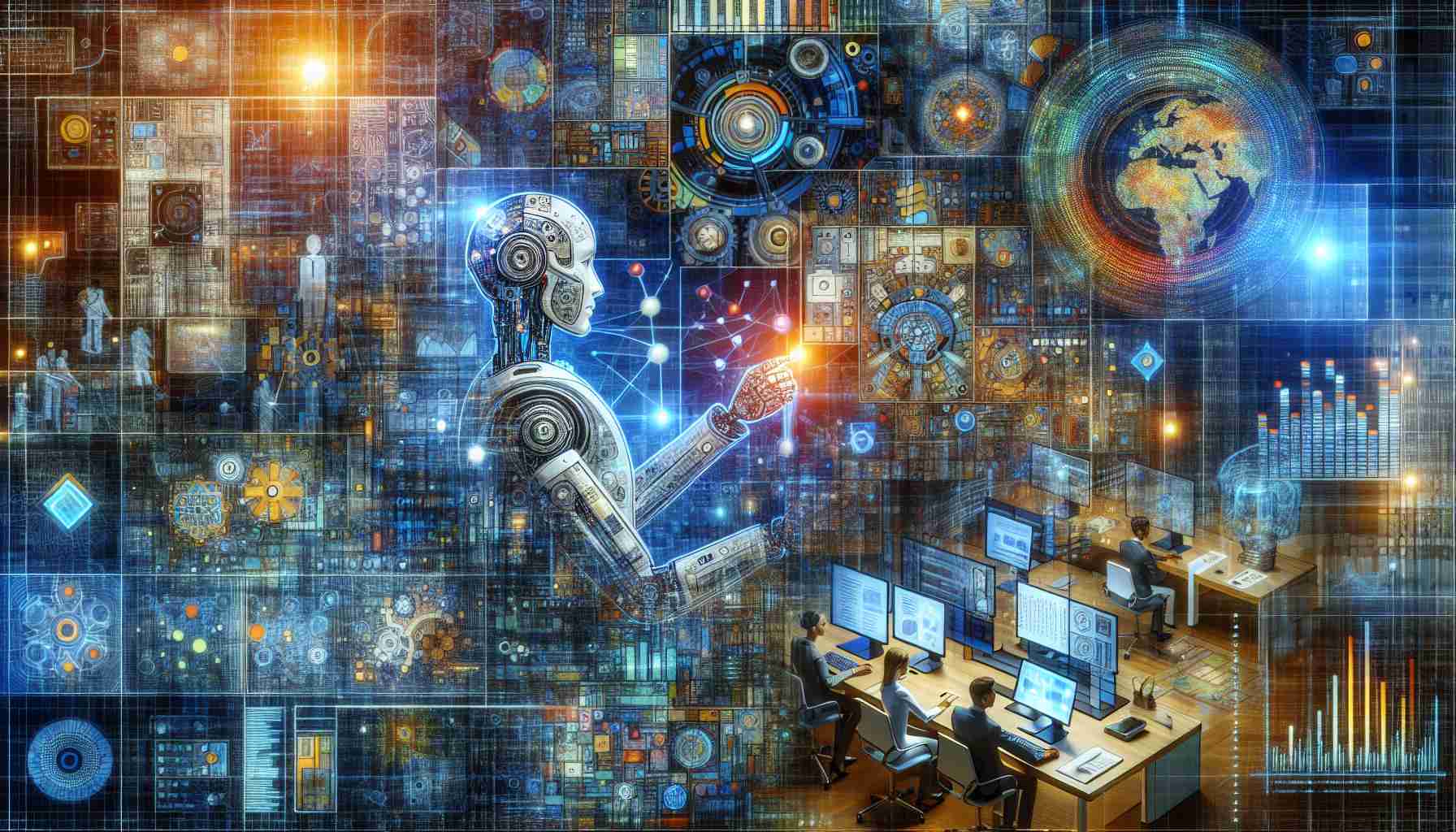Revolutionizing Industries with Generative AI
Generative artificial intelligence (AI) has undergone breathtaking advancement since late 2022, culminating in a revolutionary shift for technology. This progress is a cornerstone in shaping automated systems to emulate human intelligence.
Workforce and Employment in the AI Era
Generative AI’s evolution sparks considerable debate on its potential impact on job markets and employment. AI presents a mix of challenges and opportunities for both employees and employers, demanding diligent analysis of possible shifts in job nature, available employment types, and workforce skills.
The Global Business Turn Towards AI
Recent global surveys by McKinsey reveal a hastening trend among companies to integrate generative AI into their operations. 65% of surveyed participants disclosed that their organizations frequently leverage this new wave of AI technology—a substantial increase from just ten months prior.
Industries Leading the AI Integration Charge
The service sector—particularly marketing, sales, product, and service development—and the energy sector, are breaking ground in AI adoption. These industries are at the forefront of experiencing dramatic augmentation or disruption due to generative AI.
Job Transformation and Future Outlook
McKinsey Institute’s director, a leading voice in the field, stresses the imminent need to take AI seriously irrespective of industry type. In specific sectors like healthcare, construction, and education, job demand will escalate. Contrarily, by 2030, administrative assistance, customer service, food services, and manufacturing and production jobs could become obsolete due to AI.
AI’s Influence on Job Functions
The advent of generative AI could contribute nearly $7 trillion to the global GDP, alongside a projected 1.5 percentage points increase in productivity growth over the next decade. Recognizing the transformative capabilities of AI, businesses linked to customer service and manufacturing must prepare for inevitable changes through scaling effective AI tools.
The Inescapable Change Powered by AI
AI technology thrives in roles dominated by repetitive tasks given its adeptness at rapid data analysis and decision-making. It’s foreseen that certain jobs, particularly those that are repetitive and data-intensive, are at heightened risk of disappearing in the coming years, as intelligent machines excel beyond human capability.
Important Questions and Answers
1. What are key challenges associated with the rapid integration of AI in business?
One of the key challenges is managing the workforce transition, where certain jobs are at risk of automation, leading to potential unemployment and the requirement for substantial retraining of employees. Another challenge is data privacy and ethical considerations associated with AI usage. Additionally, small businesses might struggle with the initial costs of implementation and competing with larger enterprises that have more resources to allocate to AI technology.
2. What controversies are related to the expansion of AI technology?
Controversies include issues around bias in AI decision-making, as AI systems can perpetuate existing biases present in the data they are trained on. There is also significant discussion around the “black box” problem, where the decision-making processes of AI systems are not transparent or explainable. Moreover, there’s the question of accountability when AI makes an incorrect or harmful decision.
Advantages and Disadvantages of AI in Business
Advantages:
AI can greatly enhance efficiency and productivity, allowing businesses to scale operations without a corresponding increase in staff. It also enables personalized experiences for customers, improved data analysis, and the ability to unlock new business insights, potentially leading to innovations in products and services. Additionally, it can lead to cost savings in the long term by automating routine tasks and reducing error rates.
Disadvantages:
The biggest disadvantage is the potential for job disruption, as AI may automate jobs that are repetitive or predictable. Implementing AI can also be costly, creating barriers for smaller businesses. There is the risk of AI systems being hacked or manipulated, leading to data breaches or other security concerns. Lastly, there is an inherent difficulty in programming AI to deal with complex, nuanced, or ethical decisions that are easily handled by human workers.
Suggested Related Links:
– MIT Technology Review
– WIRED
– Forbes
The aforementioned links provide updated industry insights, AI developments, ethical discussions, and guidance for businesses looking to integrate AI into their operations. They are curated to offer a broad perspective on not only the technical advancements but also the economic and ethical dimensions of AI in the business world.
The source of the article is from the blog revistatenerife.com

